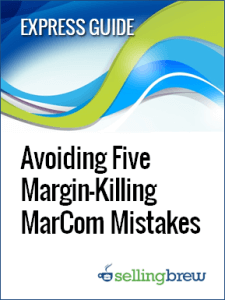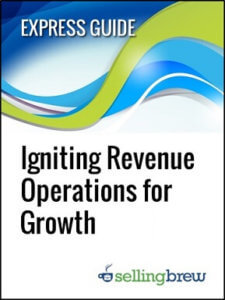Consultants often get a bad rap. Particularly from the employees at the businesses that have hired those consultants.
Those criticisms aren’t entirely undeserved. Consultants cost a lot of money. Money that the employees think could be better spent another way.
And consultants usually spend a lot of their time finding fault with the way the business operates — despite the fact that the consultants probably aren’t all that familiar with the intricacies of the day-to-day realities.
Then the consultants usually take off before their ideas get implemented. They don’t stick around to do the actual hard work of putting things into practice.
Given all that, it’s easy to understand why the people who actually work for a company tend to look askance at consultants.
Yet despite all these criticisms, management keeps hiring consultants. So those consultants must have something valuable to offer.
In our experience, one of the biggest selling points for consultants is the mindset they bring to the job. Specifically, they have five characteristics that set them apart from regular employees:
- Priorities: Regular employees often get caught up in daily tasks and lose sight of their annual or quarterly or monthly objectives. But consultants excel at identifying what matters most and not losing sight of the ultimate objective.
- Leverage: Consultants get paid for results — not for spending a lot of time on a problem. So they work hard to figure out how to get the biggest bang from the least amount of effort, expense, and pain.
- Increments: It’s hard to get people to accept a huge change all at once. Consultants have learned this lesson and are willing to take a series of smaller wins rather than pushing for everything all at once.
- Systems: Your organization has a lot of people, policies, and processes keeping the status quo in place. If you want to make long-term change, you have to make fundamentals changes to those people, policies, and processes that go beyond just asking everyone to work harder.
- Options: There’s more than one way to make progress or address problems. A good consultant has the flexibility to consider all the different options and recommend the one that is going to be the most palatable for the organization.
Looking at these characteristics in more detail, you can easily see why management values consultants so much.
But hopefully, you can also see that you don’t have to be an outsider to adopt this mindset and experience some of its benefits. We cover this topic in more detail in Being An Internal Sales Consultant. It also highlights some critical soft skills and the “go-to” initiatives that consultants often recommend.
The best part of this approach is that internal consultants don’t have the same downsides as external consultants. Your company doesn’t have to pay more for your services, you’re familiar with the business already, and you are (hopefully) going to stick around to see your ideas become reality.
If you give this approach a try, you’ll probably see some immediate benefits — both for you personally and for your organization.












